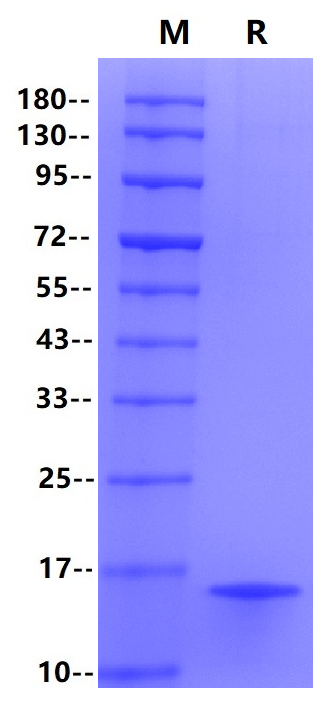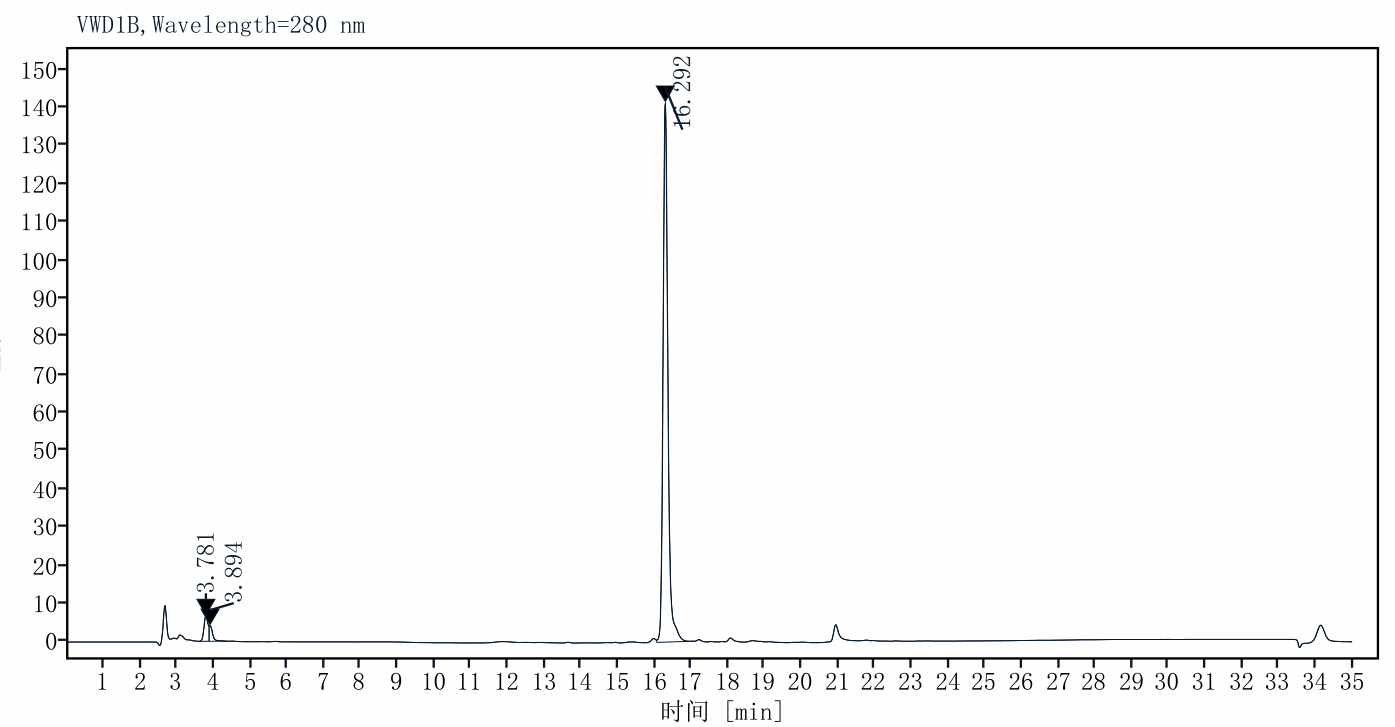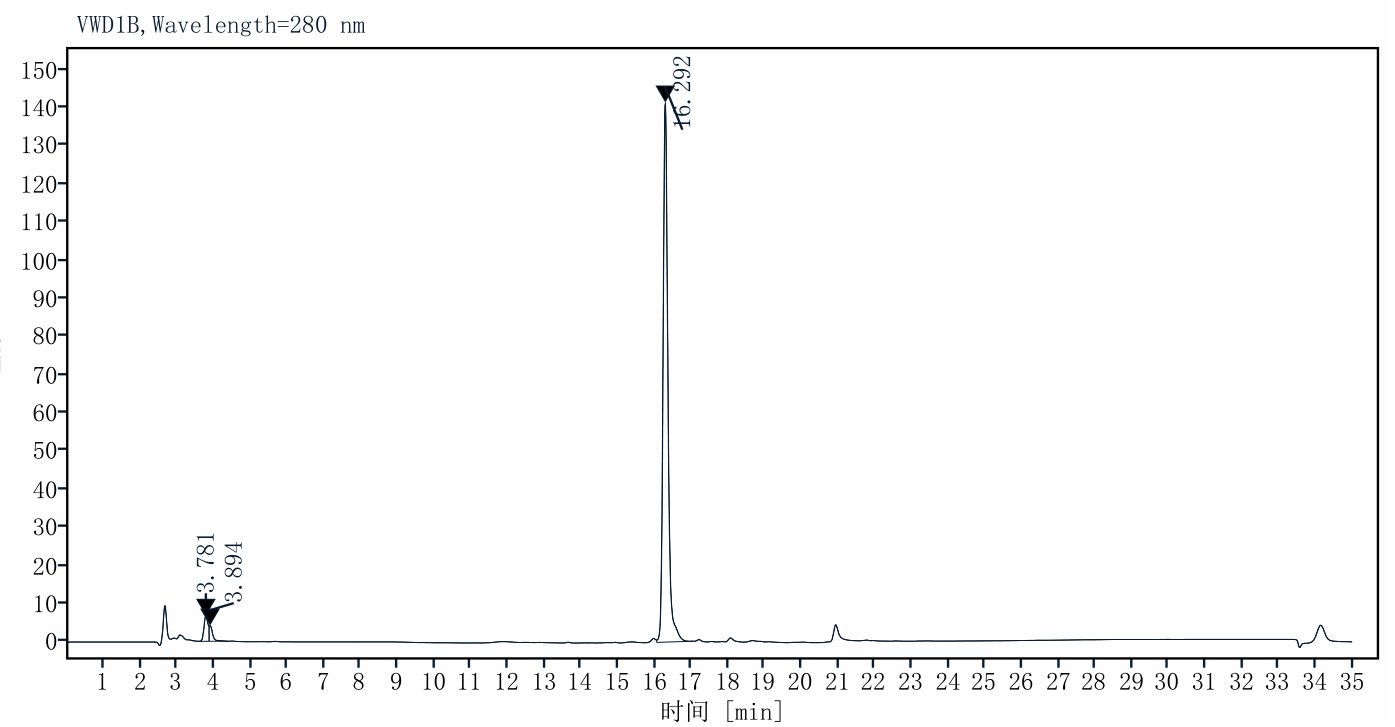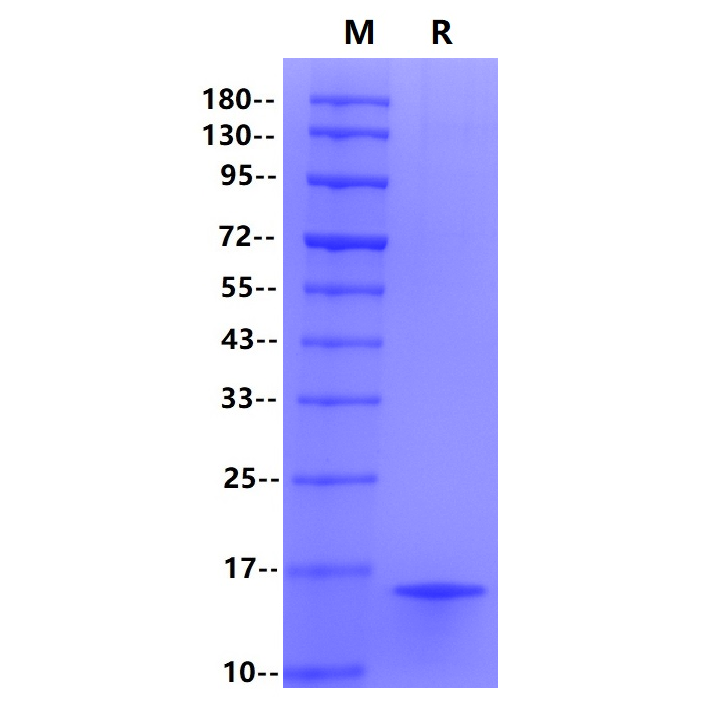Product Details
Product Details
Product Specification
| Species | Human |
| Synonyms | Procalcitonin,PCT |
| Accession | P01258 |
| Amino Acid Sequence | MHHHHHHDDDDKAPFRSALESSPADPATLSEDEARLLLAALVQDYVQMKASELEQEQEREGSSLDSPRSKRCGNLSTCMLGTYTQDFNKFHTFPQTAIGVGAPGKKRDMSSDLERDHRPHVSMPQNAN |
| Expression System | E.coli |
| Molecular Weight | 14.2 kDa |
| Purity | >90%, SDS-PAGE&RP-HPLC |
| Endotoxin | <2EU/μg |
| Conjugation | Unconjugated |
| Tag | His Tag |
| Physical Appearance | Lyophilized Powder |
| Storage Buffer | 20mM Tris-HCl, 200mM NaCl, 1mM EDTA, pH8.0 |
| Reconstitution | Reconstitute at less than 1 mg/mL according to the size in ultrapure water after rapid centrifugation . |
| Stability & Storage | · 12 months from date of receipt, -20 to -70 °C as supplied. |
Background
Procalcitonin (Procalcitonin, PCT) is a secretory protein belonging to the calcitonin family. Calcitonin can be broken into the following two chains: Catacalcin and calcitonin. Catacalcin is an effective plasma calcitonin. Calcitonin is a linear polypeptide hormone containing 32 amino acids. Calcitonin can reduce the content of serum calcium (Ca2+) and the effect of parathyroid hormone (PTH). Calcitonin causes a rapid but temporary decline in blood calcium and phosphate levels by promoting the binding of calcium and phosphate ions in bones. Studies have shown that the content of PCT in the serum of healthy people is very low, even can not be detected, when infected with bacteria, the level of PCT will significantly increase, so it can be used as an indicator of bacterial infectivity.
Picture
Picture
SDS-PAGE

RP-HPLC




